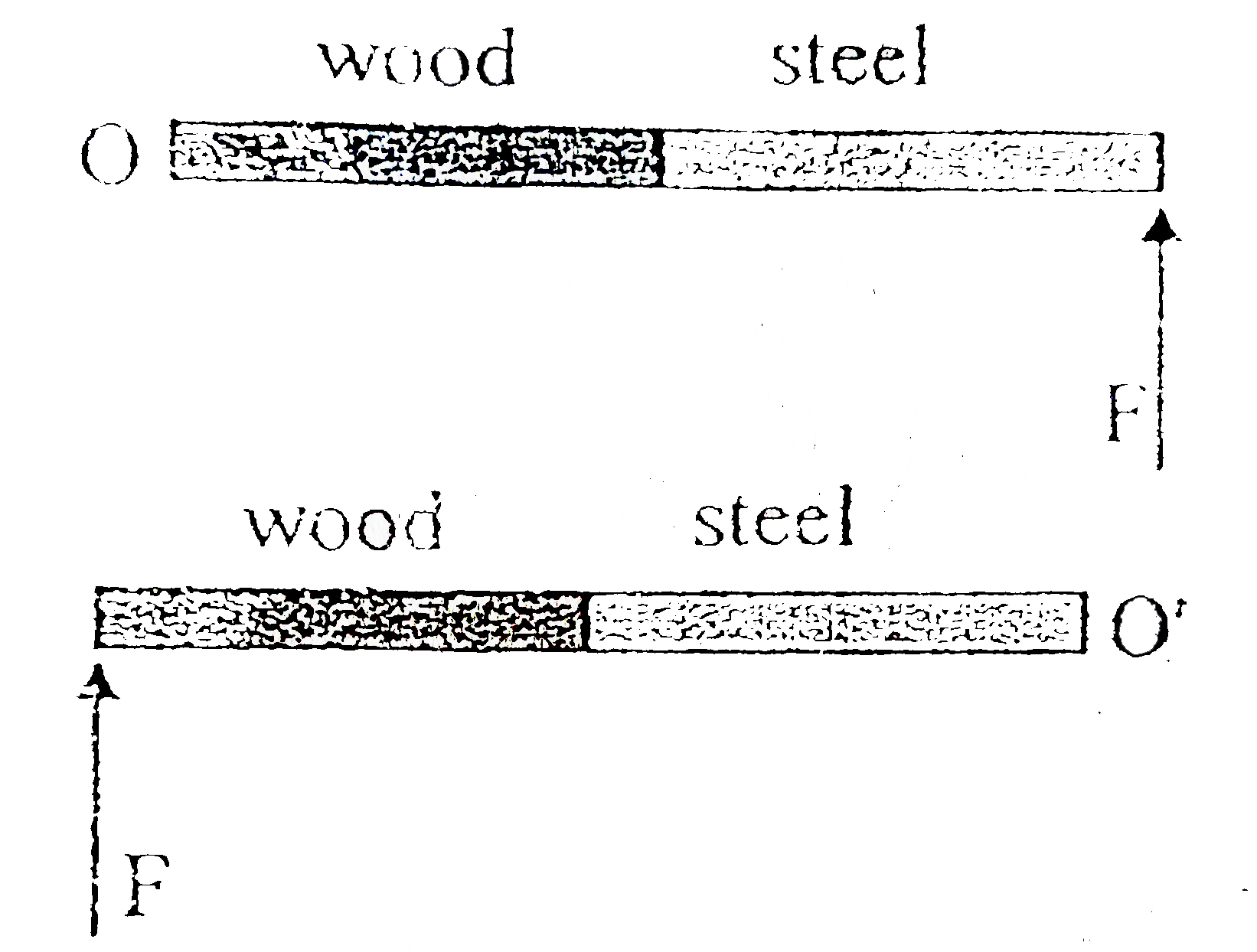A meter stick, half of which is wood and the other half steel, is pivoted at the wooden end and same force isapplied to the steel end. Next, it is pivoted at the steel end and the same force is applied at the wooden end. Does one getthesame angular acceleration in eachcase ? Explain
Step by step video solution for A meter stick, half of which is wood and the other half steel, is pivoted at the wooden end and same force isapplied to the steel end. Next, it is pivoted at the steel end and the same force is applied at the wooden end. Does one getthesame angular acceleration in eachcase ? Explain by Physics experts to help you in doubts & scoring excellent marks in Class 11 exams.
Updated on:21/07/2023Topper's Solved these Questions
- System of particles & rotational MotionBOOK - SL ARORACHAPTER - System of particles & rotational MotionEXERCISE - EXERCISE
353 Videos
- ROTATIONAL MOTIONBOOK - SL ARORACHAPTER - ROTATIONAL MOTIONEXERCISE - Problem for self practice
90 Videos
- Thermal Properties of MatterBOOK - SL ARORACHAPTER - Thermal Properties of MatterEXERCISE - Exercise
449 Videos
Similar Questions
In first figure a meter stick, half of which is wood and the other half steel is pivoted at the wooden end at A and a force is applied at the steel and at O. On second figure the stick is pivoted at the steel end at O and the same force is applied at the wooden end at A. The angular acceleration.
 .
.
View SolutionThe adjacent figure shows a non-uniform metre stick AB having the linear mass density variation λ=λ0x , where λ0 is a constant and x is the distance from end A, placed on a smooth horizontal surface. In the first experiment, the rod is pivoted at A and force F is applied perpendicular to the rod at the other end B and in the second experiment, the rod is pivoted at B and the force is applied perpendicular to the rod at the end A. If in the first case angular acceleration is αA and in the second case it is αB then

View Solution
Knowledge Check
In first figure a meter stick, half of which is wood and the other half steel is pivoted at the wooden end at A and a force is applied at the steel and at O. On second figure the stick is pivoted at the steel end at O and the same force is applied at the wooden end at A. The angular acceleration.
 .Ain first is greater than in secondBequal in both first and secondCin second is greater than in firstDNone of the above.
.Ain first is greater than in secondBequal in both first and secondCin second is greater than in firstDNone of the above.Figures 1 and 2 below show a meter stick, haif of which is wood and half of which is steel. (Steel is denser than wood). In figure 1, the stick is pivoted at the wooden end, at O, and a force F is applied to the steel end. In figure 2, the stick is pivoted at the steel end at O, and an identical force is applied to the wooden end. [Neglect Gravity].
 AThe angular acceleration will be greater for the stick in figure. 1. because the torque about Q is greater than the torque about O'BThe angular acceleration will be greater for the stick in figure 2, because the torque about O' is greater than the torque about O.CThe angular acceleration will be greater for the stick in figure 1 because the rotational inertia about O is smaller than the rotational inertia about O'DThe angular acceleration will be greater for the stick in figure 2 because the rotaional ineria about O' is smaller man the rotational ineria about O.
AThe angular acceleration will be greater for the stick in figure. 1. because the torque about Q is greater than the torque about O'BThe angular acceleration will be greater for the stick in figure 2, because the torque about O' is greater than the torque about O.CThe angular acceleration will be greater for the stick in figure 1 because the rotational inertia about O is smaller than the rotational inertia about O'DThe angular acceleration will be greater for the stick in figure 2 because the rotaional ineria about O' is smaller man the rotational ineria about O.In the figure (i) half of the meter scale is made of wood while the other half, of steel. The wooden part is pivoted at O. A force F is applied at the end of steel part. In figure (ii) the steel part is pivoted at O and the same force is applied at the wooden end
 AMore acceleration will be produced in (i)Bmore acceleration will be produced in (ii)Csame acceleration will be produced in both conditionsDinformation is incomplete
AMore acceleration will be produced in (i)Bmore acceleration will be produced in (ii)Csame acceleration will be produced in both conditionsDinformation is incomplete
Two masses are attached to a rod end to end . If torque is applied they rotate with angular acceleration α. If their distances are doubled and same torque is applied, then they move with angular acceleration.
View SolutionHeat flows from one end of a steel spoon to the other end by
View SolutionA stretching force of 10N is applied at one end of a spring balance and an equal force is applied at the other end at the same time. The reading of the balance is
View SolutionA stretching force of 10N is applied at one end of a spring balance and an equal force is applied at the other end at the same time The reading of the balance is .
View SolutionA stretching force of 1 N is applied at one end of a spring balance and an equal stretching force is applied at the other end at the same time. The reading on the balance will be
View Solution
